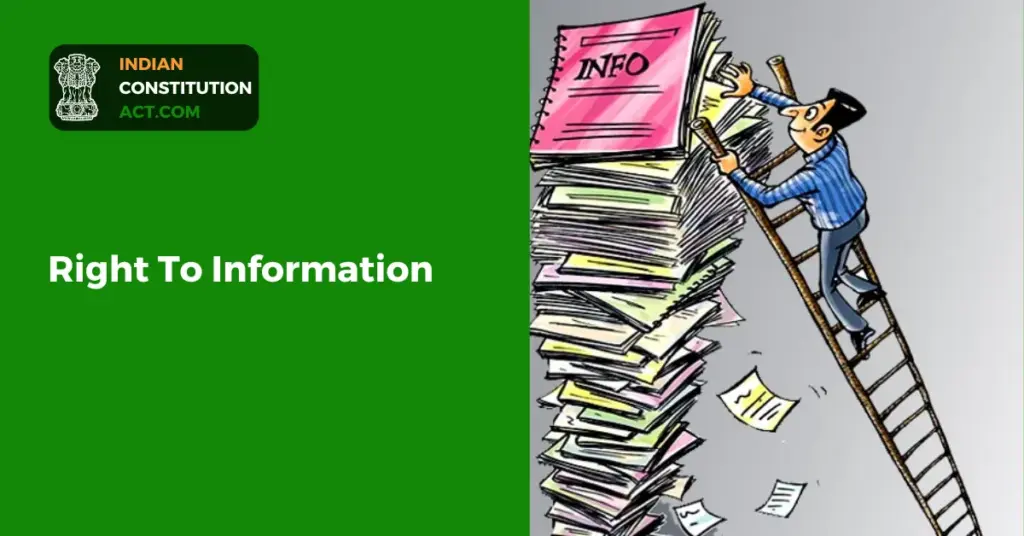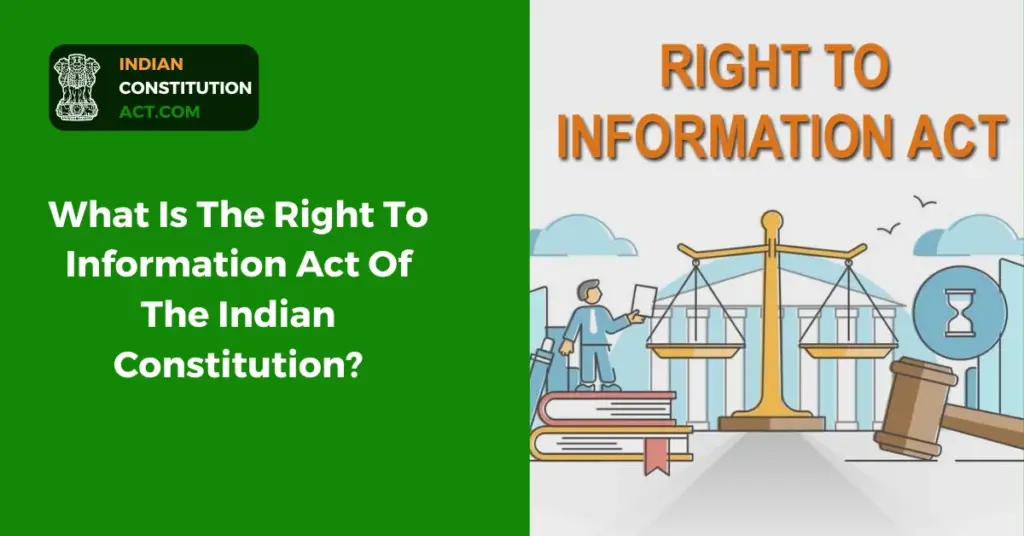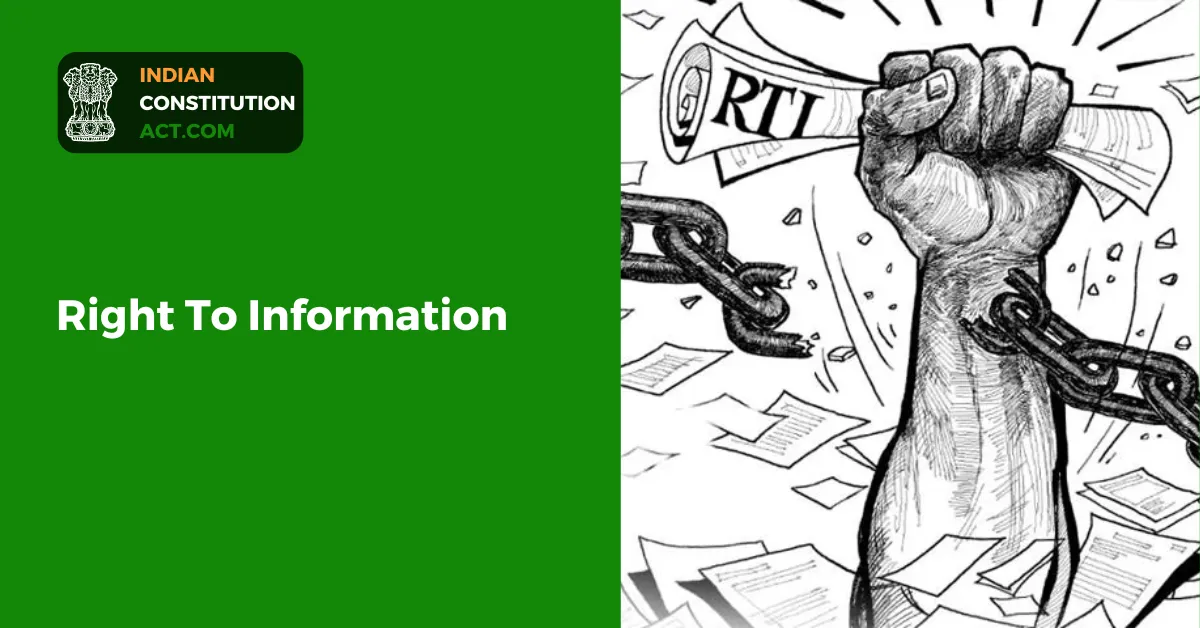The Right to Information Act of the Indian Constitution is very important. It is a fundamental right under Article 19 (1) of the Constitution of India. In the Raj Narain vs the State of Uttar Pradesh case of 1976, the Supreme Court officially ruled that the right to information will be treated as a fundamental right under Article 19. Now here we are sharing all the details of this act in this blog, so read it carefully.
Right To Information Act Of The Indian Constitution

The Right to Information Act of the Indian Constitution sets out the rules and procedures regarding citizens’ right to information. This act replaced the former Freedom of Information Act, of 2002. Under this act, every citizen of India may request information from a public authority as it’s their right to know everything. It is required to reply within 30 days.
But in case of matters involving a pateitioner life and liberty, the information has to be given within 48 hours. This act also needs every public authority to computerize their records for wide dissemination and to publish certain categories of information. This is because the citizens need minimum recourse to frequent information.
This act is made to provide for setting out the practical regime of the right to information for citizens to secure information under the control of public authorities to promote transparency and accountability in the working of every public authority. The constitution of a central information commission and state information commissions and for matters that are visibility connected incidentally thereto.
The Right to Infomation Act of the Indian Constitution was officially enacted on 15th June 2005 and it was assented to 22nd June 2005 finally, it commenced on 12th October 2005. The act has been in force since 2005.
This act has been given the status of a fundamental right under Article 19(1) of the Indian Constitution. Under this article, any citizen has all the freedom of speech and expression and they have the proper right to know how the government works what rules it plays and what are its functions. The main objective of the Right to Information Act is to empower citizens to question the government as they have all the right to ask it.
Also read: What Is The Right To Education Act Of The Indian Constitution?
What Type Of Information Can Be Requested Through the Right To Information Act Of The Indian Constitution?
The citizens can seek any information from the government authorities that the government can disclose to the parliament. Some information that can affect the sovereignty and the integrity of India is exempted from the purview of RTI. Information relating to internal security, relations with foreign countries, intellectual property rights (IPR), and cabinet discussions are exempted from RTI.
Important Provisions Under The Right To Information Act Of The Indian Constitution

- Section 2(h): Public authorities mean all authorities and bodies under the union government, state government, or local bodies. The Civil societies that are substantially funded, directly or indirectly, by public funds also fall within the ambit of RTI.
- Section 4 1(b): Government has to maintain and proactively disclose information.
- Section 6: Prescribes a simple procedure for securing information.
- Section 7: Prescribes a time frame for providing information(s) by PIOs.
- Section 8: Only minimum information is exempted from disclosure.
- Section 8 (1) mentions exemptions against furnishing information under the RTI Act.
- Section 8 (2) provides for disclosure of information exempted under the Official Secrets Act, 1923 if the larger public interest is served.
- Section 19: Two-tier mechanism for appeal.
- Section 20: Provides penalties in case of failure to provide information on time, incorrect, incomplete or misleading or distorted information.
- Section 23: Lower courts are barred from entertaining suits or applications. However, the written jurisdiction of the Supreme Court of India and high courts under Articles 32 and 226 of the Constitution remains unaffected.
